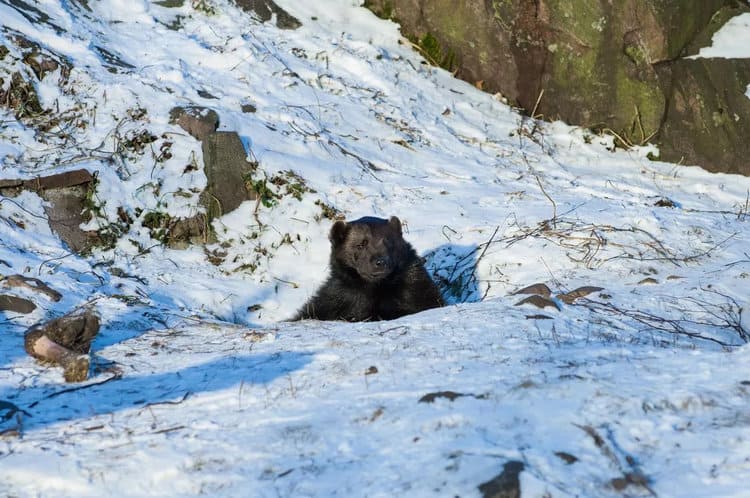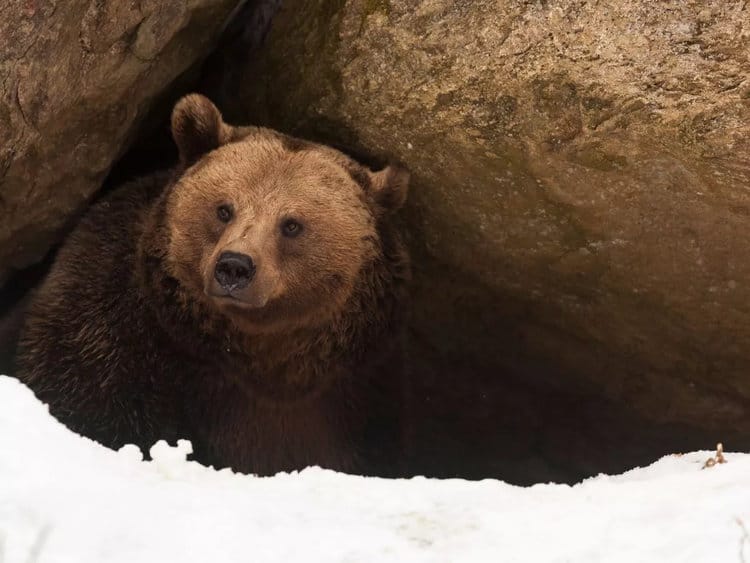
[ad_1]
Bears in Siberia have been spotted wandering around “half-asleep” as they struggle to hibernate due to unusually high temperatures in Russia’s Far East.
The Wildlife Conservation Authority of the Amur region has stated that while many bears have already accumulated the fat they need for the winter season, the current high temperatures are preventing them from entering hibernation.
The issue mainly affects male bears, as females with cubs took their offspring to their dens at the end of October and did not appear to be “bothered” by the “weather anomalies”.
Officials have blamed the struggles of the bears on climate change and global warming, as the animals cannot reach the condition they need to properly hibernate.
In the Amur region, which is located on the banks of the Amur and Zeya rivers in the Russian Far East and borders with China and Mongolia, average temperatures in October exceeded the norm by 1.5 to 2C.
According to the Phobos weather centre, the city of Blagoveshchensk reached the warmest temperatures on record for the period of October.
While November began “with rather cold weather”, there are fears the average temperature in the Amur region will continue to exceed the long-term average, forecasters said.

However, some are disturbed by the high air temperature and wander “half-asleep” near their dens, according to government representatives. They said: “Warm November prevents bears from sleeping in the Amur region. In some areas, half-asleep bears are still walking around near their dens.”
The Wildlife Conservation Authority added: “However, females with cubs do not face such a problem. These furry mothers took their fluffy offspring into their dens strictly according to the schedule – at the end of October. And no weather anomalies bother them.”

Oivind Toien, a zoophysiologist and research assistant professor at the Institute of Arctic Biology at the University of Alaska Fairbanks, suggested that soggy dens could also be delaying the bears’ hibernation this year.
He told Live Science: “Temperatures above freezing in wet snowy conditions could cause melt-water to enter dens [and] that could make it uncomfortable for bears to stay in. The denning period in females with cubs serves the additional purpose to protect the cubs.”
What you can do
Help to save wildlife by donating as little as $1 – It only takes a minute.
This article by Kelly Williams was first published by The Daily Star on 8 December 2023. Lead Image: There is an alarming reason for their behaviour (Image: Getty Images/iStockphoto).
[ad_2]
Source link

Leave a Reply